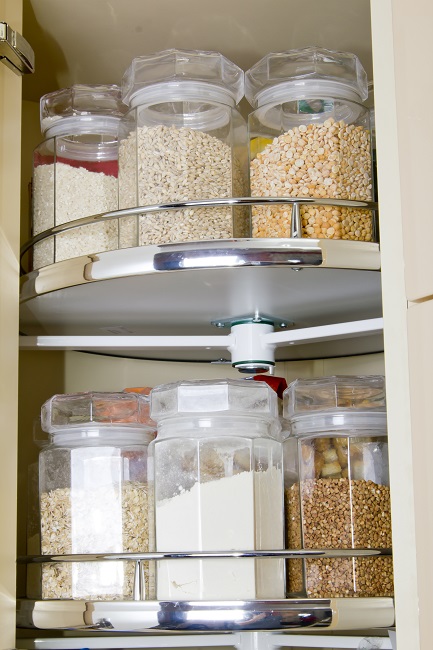High and Dry Pantry Protocols
When you’re cooking in large quantities, plentiful dry food storage is a no-brainer. From dried beans to uncooked pasta, it pays to buy your dry goods in bulk so there is probably a place for huge containers of dry ingredients in any commercial kitchen. Of course, this isn’t so simple as keeping a backup canister of flour in your kitchen at home. Commercial kitchen dry goods need to be dated and maintained with almost as much care as the meats and produce. Basically, if you think dry food storage is a thoughtless task, you’re doing it wrong.

Date Everything
For those familiar with the rigors of commercial food production, you’re accustomed to putting dates on absolutely everything. Dry goods are no exception. While they may not have an official expiration date, there’s an undeniable difference between fresh pasta and pasta lost for years in the back of your pantry. Once everything is dated, remember to use the FIFO (First-In-First-Out) protocol to ensure that older ingredients are used first. Applied properly, this prevents anyone container from aging for too long.
Cool and Dry
Dry goods usually have an amazing shelf life, but only if they remain dry. In a commercial kitchen, mold and rot are your worst enemies. In order to keep your dry ingredients safe, you must reduce their exposure to all forms of moisture and humidity. Store your dry goods indoors, preferably in a cool pantry. While it may be tempting to stack them up against the walls, don’t. Just like your mirror when you take a shower, a difference in temperature between the container and the wall can create condensation and cause unexpected rot in an apparently dry room. Store your ingredients up off the ground and a few inches away from the wall for best results.
Pest Prevention
That canister of dried beans is as great a store of food for insects as it is for you. Fortunately, modern cleanliness and weather stripping are usually sufficient to keep most pests and vermin out of your kitchen. To be sure your dry goods are safe, double check the seals on all doors and windows that may access your pantry, and check the walls and floors for cracks. When you are satisfied that the storage area is sealed, mop everything. This not only keeps your floors clean but also kills the chem-trails of adventurous insects like ants, breaking any previously established discovery of your stores.
Well kept dry goods are an important part of any kitchen and must be maintained with the same rigor used when storing any other food item. Keep your storage area clean and never assume an unchecked container is uncompromised. Want to see how the pros do pantry space? Contact us to check out our commercial kitchens, we’d love to show off our pantries!
